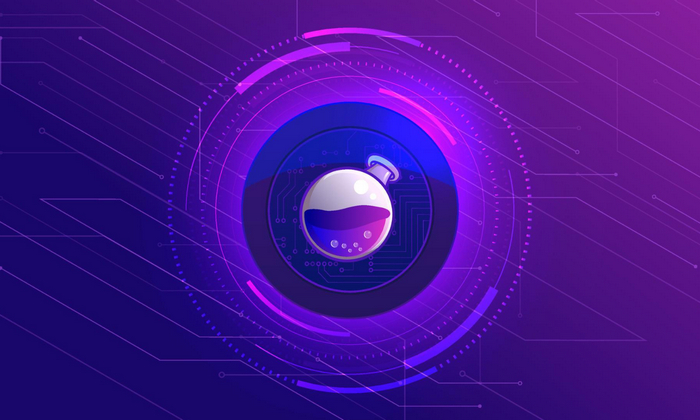-
 Bitcoin
Bitcoin $81,371.3481
1.33% -
 Ethereum
Ethereum $1,863.2862
-1.44% -
 Tether USDt
Tether USDt $0.9995
-0.03% -
 XRP
XRP $2.1532
2.82% -
 BNB
BNB $551.5983
2.04% -
 Solana
Solana $121.8555
-1.09% -
 USDC
USDC $0.9998
-0.01% -
 Cardano
Cardano $0.7174
-0.24% -
 Dogecoin
Dogecoin $0.1614
2.19% -
 TRON
TRON $0.2218
-3.57% -
 Pi
Pi $1.4858
7.52% -
 UNUS SED LEO
UNUS SED LEO $9.8629
1.24% -
 Hedera
Hedera $0.1991
2.98% -
 Chainlink
Chainlink $12.8031
0.52% -
 Stellar
Stellar $0.2510
0.78% -
 Avalanche
Avalanche $17.1592
1.69% -
 Shiba Inu
Shiba Inu $0.0...01192
2.62% -
 Sui
Sui $2.2018
1.36% -
 Litecoin
Litecoin $88.8949
0.99% -
 Bitcoin Cash
Bitcoin Cash $332.7995
-0.52% -
 Toncoin
Toncoin $2.6267
1.16% -
 Polkadot
Polkadot $3.9603
0.07% -
 MANTRA
MANTRA $6.2932
-0.69% -
 Ethena USDe
Ethena USDe $0.9992
-0.01% -
 Dai
Dai $0.9999
-0.01% -
 Bitget Token
Bitget Token $4.1293
-0.28% -
 Hyperliquid
Hyperliquid $13.4840
-4.64% -
 Monero
Monero $209.1169
3.25% -
 Uniswap
Uniswap $5.8487
0.34% -
 Aptos
Aptos $5.0989
-4.90%
How to get Osmosis coins
To deposit coins on Osmosis, choose a wallet like Keplr, establish an Osmosis account, and transfer coins to a provided deposit address.
Nov 20, 2024 at 08:18 pm

How to Get Osmosis Coins
Osmosis is a decentralized exchange (DEX) built on the Cosmos Network. It allows users to trade cryptocurrencies without having to go through a centralized intermediary. OSMO is the native token of the Osmosis platform. It is used to pay for transaction fees, participate in governance, and earn rewards for providing liquidity.
There are several easy steps you can follow to deposit coins into and withdraw tokens from Osmosis.
Depositing Coins on Osmosis
- Choose the right wallet. The Osmosis DEX can integrate with several different wallets including Keplr, a Web3 browser extension that supports connecting to Cosmos-based decentralized applications (dApps).
- Create an Osmosis account. Once you have a wallet, you need to create an Osmosis account. You can do this by going to the Osmosis website and clicking on the "Create Account" button.
- Deposit coins. Once you have an account, you can deposit coins into it. To do this, click on the "Deposit" button and select the coin you want to deposit. . You will be given a deposit address. Send the desired amount of coins to this address. Once the transaction is confirmed, your coins will be deposited into your Osmosis account.
Withdrawing Tokens from Osmosis
- Connect your wallet. To withdraw tokens from Osmosis, you first need to connect your wallet to the platform. To do this, click on the "Connect" button and select your wallet.
- Choose the token you want to withdraw. Once your wallet is connected, you can choose the token you want to withdraw. To do this, click on the "Withdraw" button and select it from the list of available tokens.
- Enter the amount you want to withdraw. Once you have chosen the token you want to withdraw, you need to enter the amount you want to withdraw.
- Withdraw your tokens. Once you have entered the amount you want to withdraw, click on the "Withdraw" button. Your tokens will then be withdrawn from your Osmosis account and sent to your wallet.
Participate in Liquidity Pools and Start Earning Rewards
- Provide liquidity. Once you have Osmosis coins, you can start earning rewards by providing liquidity to the platform. To do this, go to the "Pools" page and select the pool you want to provide liquidity to.
- Enter the amount of liquidity you want to provide. Once you have selected the pool you want to provide liquidity to, you need to enter the amount of liquidity you want to provide.
- Approve the transaction. Once you have entered the amount of liquidity you want to provide, you need to approve the transaction. To do this, click on the "Approve" button.
- Start earning rewards. Once you have approved the transaction, you will start earning rewards for providing liquidity. Your rewards will be paid out in OSMO tokens. The more liquidity you provide, the more rewards you will earn.
Potential Risks of Providing Liquidity
- Impermanent loss: The price of the two assets in the pool may change relative to each other, resulting in a loss for the liquidity provider.
- Smart contract risk: The smart contract used by Osmosis to manage its liquidity pools could contain bugs or vulnerabilities that could result in losses for liquidity providers.
- Counterparty risk: The counterparty to your trades in the liquidity pool could default, resulting in a loss for you.
Disclaimer:info@kdj.com
The information provided is not trading advice. kdj.com does not assume any responsibility for any investments made based on the information provided in this article. Cryptocurrencies are highly volatile and it is highly recommended that you invest with caution after thorough research!
If you believe that the content used on this website infringes your copyright, please contact us immediately (info@kdj.com) and we will delete it promptly.
- Coinbase Global Expands Into India, Targeting the Country's Booming Crypto Market
- 2025-03-12 14:25:49
- MIND of Pepe (MIND) Price Pumps Over 12% In Presale As Investors Go All-In On The AI-Powered Meme Coin
- 2025-03-12 14:25:49
- Pepe (PEPE) reclaims its support level, rallying 13% and targeting $0.000010
- 2025-03-12 14:25:49
- A solo Bitcoin miner using a relatively cheap, pocket-sized crypto mining rig has solved one of the blockchain's blocks and earned the full $263,000 reward.
- 2025-03-12 14:25:49
- Hibit Has Integrated Support for the Neo X EVM Sidechain into Its Non-Custodial Exchange
- 2025-03-12 14:25:49
- Top 5 Ethereum Meme Coins in 2025
- 2025-03-12 14:25:49
Related knowledge

What is Ethereum’s Slashing mechanism and how to punish malicious behavior?
Feb 20,2025 at 03:08am
Key PointsOverview of slashingDifferent types of slashing in EthereumIncentives and consequences of slashingIdentifying and reporting slashed validatorsOngoing discussions and potential improvementsEthereum's Slashing Mechanism: Punishing Malicious BehaviorEthereum's slashing mechanism is an essential tool for ensuring network security and punishing mal...

What is the verifier node of Ethereum and how to become a verifier?
Feb 19,2025 at 06:00pm
The Verifier Node of Ethereum: A Comprehensive GuideKey Points:What is a Verifier Node?How to Become a Verifier NodeResponsibilities and Rewards of a Verifier NodeMinimum Requirements for Becoming a Verifier NodePotential Difficulties in Running a Verifier Node1. What is a Verifier Node?A Verifier Node is an independent entity on the Ethereum network th...

What is Ethereum’s staking, and how to participate and earn money?
Feb 19,2025 at 04:37pm
Key Points:Understanding Ethereum's Staking MechanismSteps to Participate in StakingBenefits and Rewards of StakingSecurity and Risk ConsiderationsTechnical Requirements and Hardware OptionsPotential Challenges and Troubleshooting TipsFAQs on Ethereum StakingWhat is Ethereum's Staking?Proof-of-Stake (PoS) is a consensus mechanism used in blockchain netw...

What is Ethereum’s DAO (Decentralized Autonomous Organization) and how does it work?
Feb 20,2025 at 03:12am
Key PointsDefinition and Structure of a DAOGovernance and Decision-Making in DAOsBenefits and Use Cases of DAOsChallenges and Limitations of DAOsWhat is Ethereum's DAO (Decentralized Autonomous Organization) and How Does It Work?Definition and Structure of a DAOA Decentralized Autonomous Organization (DAO) is an innovative governance and management fram...

What is Ethereum's multi-signature wallet and how to improve security?
Feb 20,2025 at 02:18pm
Key Points:Understanding the Concept of a Multi-Signature WalletBenefits and Drawbacks of Multisig WalletsRequirements for Setting Up a Multisig WalletStep-by-Step Guide to Generating a Multisig WalletImplementing Strategies for Enhanced Security1. Understanding the Concept of a Multi-Signature WalletA multi-signature (multisig) wallet in the Ethereum e...

What is Ethereum's oracle and how to provide data for smart contracts?
Feb 21,2025 at 01:30am
Key Points:Understanding the concept of oracles in EthereumExploring different types of oraclesDetailed guide on how to provide data for smart contractsAddressing potential challenges and considerationsWhat is Ethereum's Oracle?Oracles are crucial components in the Ethereum ecosystem, enabling smart contracts to access real-world data and off-chain even...

What is Ethereum’s Slashing mechanism and how to punish malicious behavior?
Feb 20,2025 at 03:08am
Key PointsOverview of slashingDifferent types of slashing in EthereumIncentives and consequences of slashingIdentifying and reporting slashed validatorsOngoing discussions and potential improvementsEthereum's Slashing Mechanism: Punishing Malicious BehaviorEthereum's slashing mechanism is an essential tool for ensuring network security and punishing mal...

What is the verifier node of Ethereum and how to become a verifier?
Feb 19,2025 at 06:00pm
The Verifier Node of Ethereum: A Comprehensive GuideKey Points:What is a Verifier Node?How to Become a Verifier NodeResponsibilities and Rewards of a Verifier NodeMinimum Requirements for Becoming a Verifier NodePotential Difficulties in Running a Verifier Node1. What is a Verifier Node?A Verifier Node is an independent entity on the Ethereum network th...

What is Ethereum’s staking, and how to participate and earn money?
Feb 19,2025 at 04:37pm
Key Points:Understanding Ethereum's Staking MechanismSteps to Participate in StakingBenefits and Rewards of StakingSecurity and Risk ConsiderationsTechnical Requirements and Hardware OptionsPotential Challenges and Troubleshooting TipsFAQs on Ethereum StakingWhat is Ethereum's Staking?Proof-of-Stake (PoS) is a consensus mechanism used in blockchain netw...

What is Ethereum’s DAO (Decentralized Autonomous Organization) and how does it work?
Feb 20,2025 at 03:12am
Key PointsDefinition and Structure of a DAOGovernance and Decision-Making in DAOsBenefits and Use Cases of DAOsChallenges and Limitations of DAOsWhat is Ethereum's DAO (Decentralized Autonomous Organization) and How Does It Work?Definition and Structure of a DAOA Decentralized Autonomous Organization (DAO) is an innovative governance and management fram...

What is Ethereum's multi-signature wallet and how to improve security?
Feb 20,2025 at 02:18pm
Key Points:Understanding the Concept of a Multi-Signature WalletBenefits and Drawbacks of Multisig WalletsRequirements for Setting Up a Multisig WalletStep-by-Step Guide to Generating a Multisig WalletImplementing Strategies for Enhanced Security1. Understanding the Concept of a Multi-Signature WalletA multi-signature (multisig) wallet in the Ethereum e...

What is Ethereum's oracle and how to provide data for smart contracts?
Feb 21,2025 at 01:30am
Key Points:Understanding the concept of oracles in EthereumExploring different types of oraclesDetailed guide on how to provide data for smart contractsAddressing potential challenges and considerationsWhat is Ethereum's Oracle?Oracles are crucial components in the Ethereum ecosystem, enabling smart contracts to access real-world data and off-chain even...
See all articles














































































